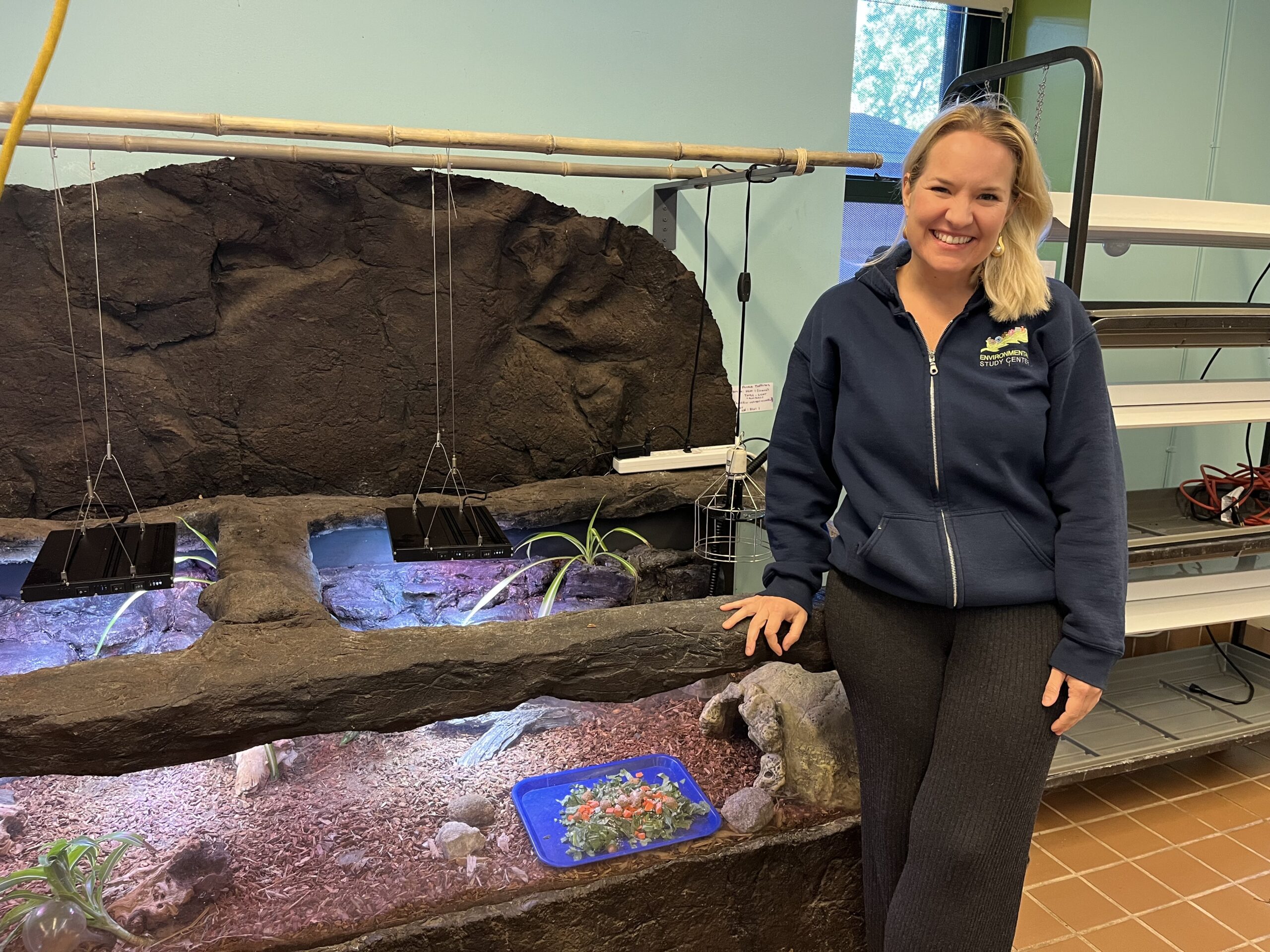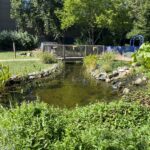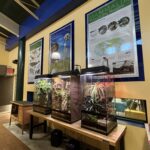An iguana sits high on a thin branch. Schools of small, silver fish dart around a wide tank. And two North American turkeys stroll around a backyard pen.
This is the backdrop that students who visit the Genovesi Environmental Study Center (GESC), 7151 Avenue T, get to experience.
The center, part of the city’s Department of Education, stands next to P.S.312 since 1997. It offers approximately 20 courses for K-12 students from across the city about plants, animals and the environment. This school year, GESC has a new course, Crazy for Composting. The course started when public schools resumed taking classes on trips a couple of months ago.
With five classrooms, a greenhouse, a hydroponics lab, a pond, a farm and a garden, the center hosts five class trips a day, every day. The halls, classrooms and yard house fish, sand sharks, bunnies, tortoises, frogs, chicken, bearded dragons and snakes for students to observe and learn about.
When a teacher signs their class up for a trip to GESC, they have to choose a specific course for their students to take. Offered courses range from animal care to the watershed to predator-prey relationships, and now composting.
“It’s very hard to get a trip there, to be honest,” said Bensonhurst’s P.S.205 teacher Kristen Morrone Alesia, 41. She’s taken her 5th-grade classes to GESC previously and wants to schedule another trip this year. Because the trips are so popular, slots get filled quickly.
Elementary schoolers can also attend summer camp at the center, while high schoolers can participate in summer, spring break and after-school internships.
GESC’s mission: to encourage and educate students to care about the environment through experiential learning and to do their part in protecting it.
“Overall, we want students to feel like they have the ability to become stewards of the environment, to be environmentally aware and that it’s something they can reach,” Sarah Bowers, 37, the assistant director of the center, said in an interview. “It’s not something only adults can do; they can do it too.”
Crazy for Composting was inspired by the compost bins that sit inside the farm. The K-2 version focuses on how decomposers, like worms and isopods, turn organics into compost. The 9-12 version teaches the chemistry of decomposition and the uses for nutrient-rich compost.
Younger students get to go out and turn the compost in the bins. All students will be given cups of compost with worms. GESC’s hope for those cups is that they will be used to create at-home or in-classroom compost bins, Bowers said.
“Our goal always is to spread the word about environmental concerns and issues,” she said. “Our hope is that students will walk away from the composting class understanding and being able to share with their loved ones and friends and anyone how important it is to not throw away your food and to bring organics to a drop-off site.”
Bringing organics to a drop-off site is important to keep unnecessary organic waste, such as food scraps and lawn clippings, out of crowded landfills, Maria Garrett, a local environmental and climate change activist from Canarsie, said.
On top of that, Garrett — who is the president of Canarsie’s Fresh Creek Civic Association, which advocates and organizes for environmental issues — explained that compost gives the community the ability to increase its native greenspaces by providing nutrition to plant beds and gardens.
“We have to encourage more of the people to get involved in it,” she said. “I usually stress to the residents that it’s very important that we protect the environment.”
Savannah Esposito, 10, is a 5th-grader at P.S.312 and the school’s GESC ambassador. Her mother, Lidia Esposito, 47, said it’s because of a GESC lesson on composting that their family now collects their organics and drops them at the center for composting every Tuesday.
“For us, the impact was the composting,” Lidia said. “We didn’t realize the necessity of it, and we didn’t realize the way the cycle works, so that was something we took away.”
Lidia spoke to the broader goal of the center — to benefit the environment now and into the future by creating a more informed youth.
“It doesn’t look like much is going on from the outside, but there’s a lot of education there,” Savannah said.





